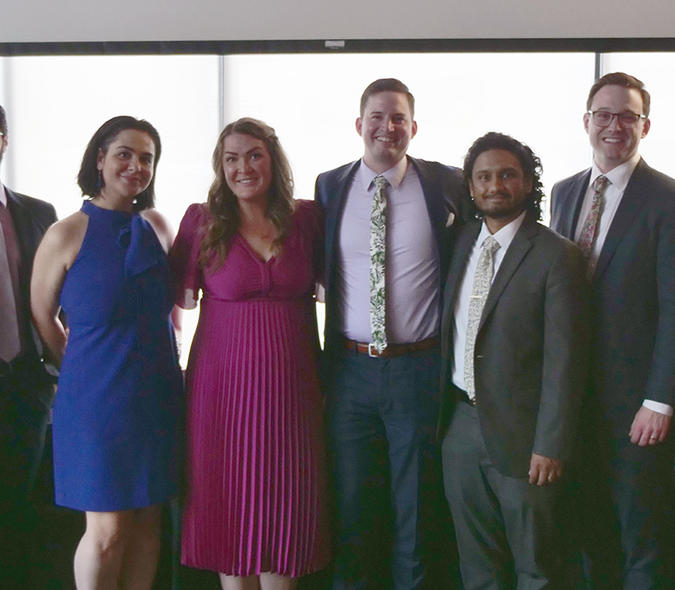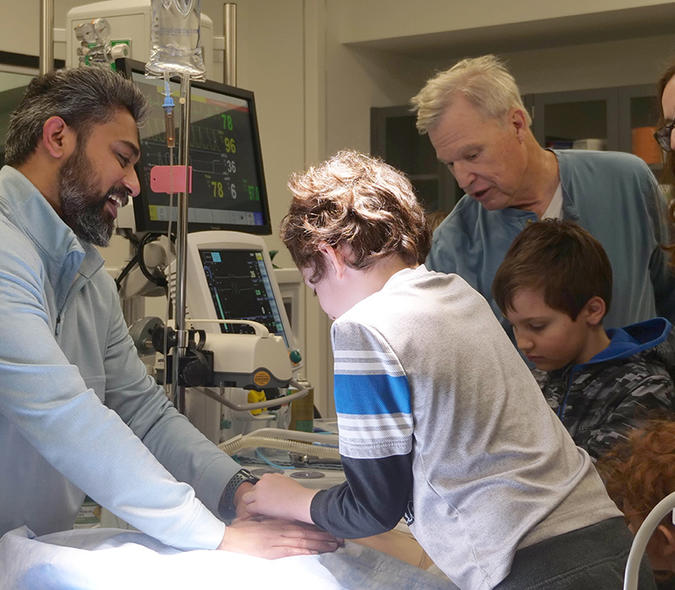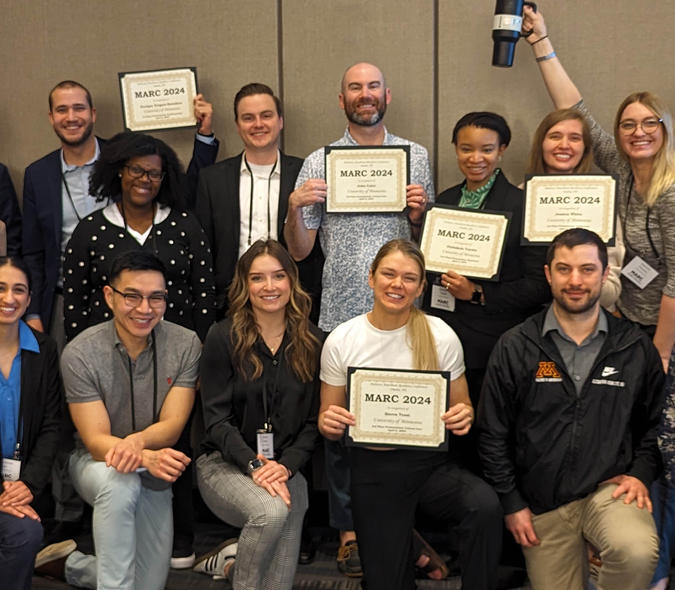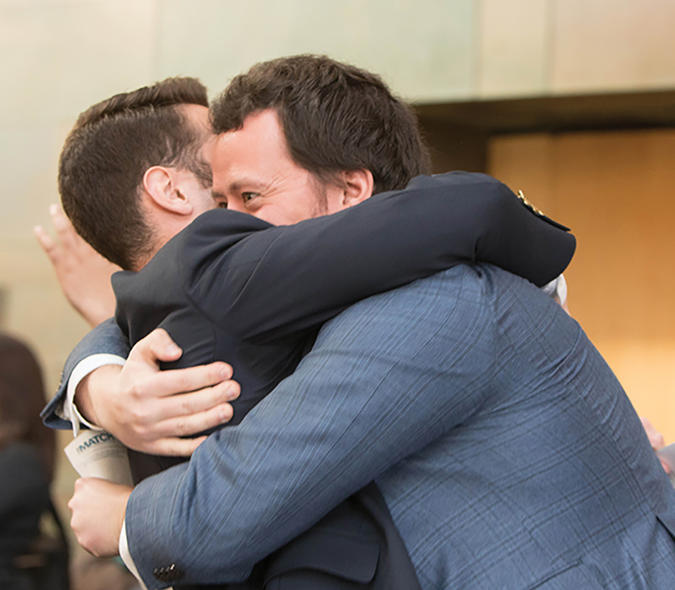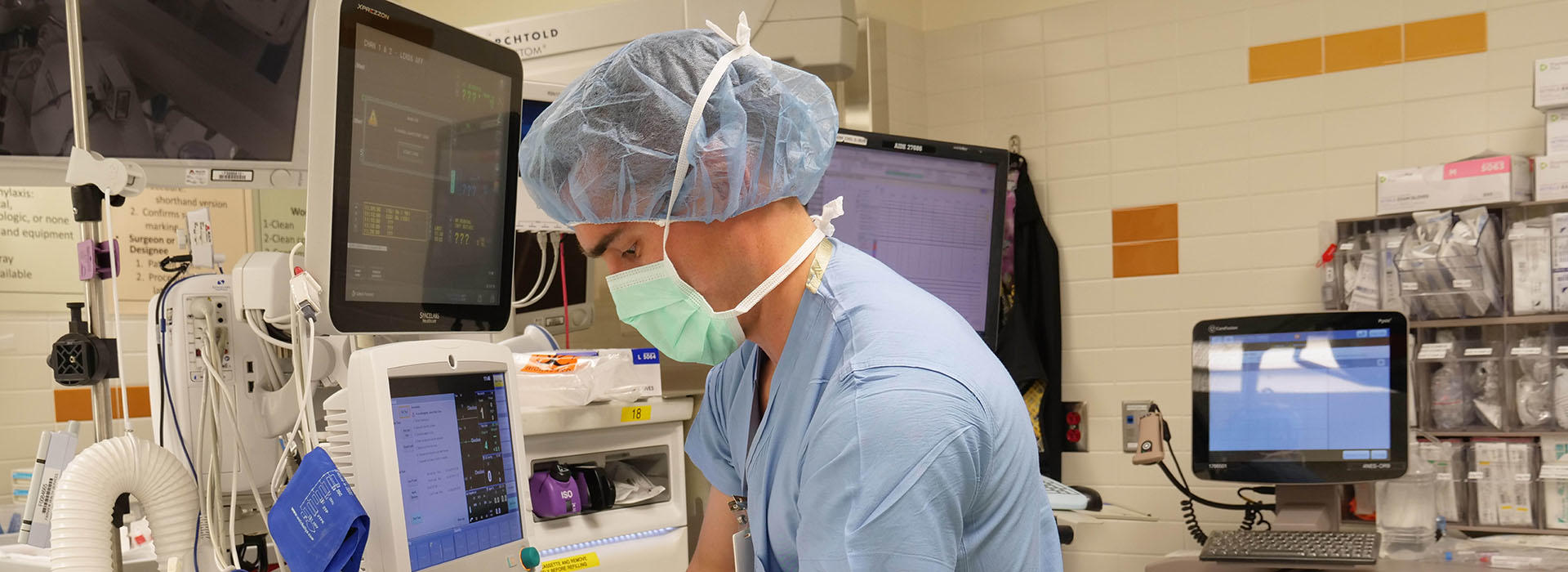
Providing the Full Spectrum of Anesthesia Care and Training
When a patient walks into a hospital or clinic, they want to know that their procedure will be safe and under the care of highly trained medical professionals.
Academic anesthesiology comprises a foundational pillar of our healthcare system and a patient’s healthcare journey by ensuring procedures, whether they be inpatient or outpatient, are performed with the utmost quality of care.
“It’s not about maintaining the status quo, it’s about thinking deeply how to make patient care better, how to make it safer, how to make the experience better for patients, how to make surgery less stressful and how to get people back onto their feet and back in their normal lives,” says Dr. Nicholas Rothbard, a third year resident in the Department of Anesthesiology.
The steady improvement of the quality and safety of patient care is a central focus of anesthesia departments around the world. Anesthesiologists are responsible for managing a patient’s pain, making sure airways are unobstructed, keeping patients sedated during procedures, and much more.
“Anesthesia departments are one of the main drivers of quality improvement and patient safety efforts within the perioperative environment. The perioperative environment is very active so patient safety makes a huge difference,” says Dr. Mojca Remskar, Executive Vice Chair for the Department of Anesthesiology.
Because of that level of quality improvement and focus towards innovation and cutting-edge procedures, academic anesthesiologists and other providers are able to take on more advanced cases that require specialized care. It’s this ability that makes academic institutions vital to the communities that they serve.
“Academic institutions tend to take the most sick and complex cases that other hospitals aren’t prepared to handle. Those cases take longer and take more resources, but that’s the mission. Nobody works in academic medicine who doesn’t want to do that,” says Dr. Rothbard.
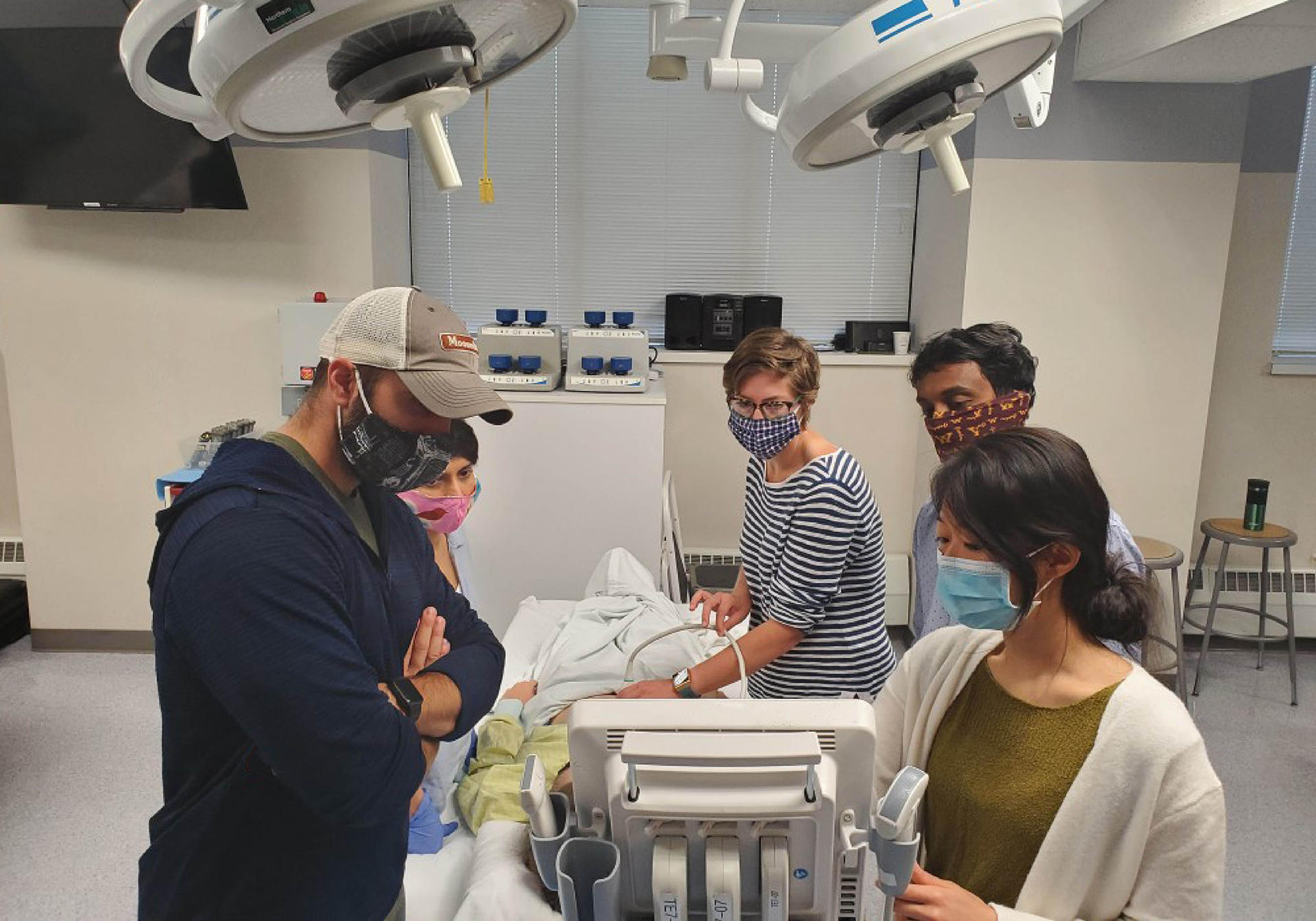
Academic anesthesia departments also have other core responsibilities that other practice groups don’t focus on. Those responsibilities include the education and training of future anesthesiologists, as well as discovering new innovations and expanding our medical understanding.
“There are three tenets of academic medicine. The first being clinical medicine, the second education, and the third research,” says Dr. Remskar. “As compared to private medicine that primarily focuses on clinical medicine, academic medicine has to nurture those other areas and develop future generations of providers.”
Whether it be training residents and fellows, conducting innovative clinical trials, or taking on our most challenging cases, academic anesthesiologists have become an essential component of our healthcare system.
“Academic hospitals have always been pillars of their communities and I think they will continue to be so. I can’t imagine working anywhere else,” says Dr. Rothbard.
